Called to Act with Justice: The beauty of caring for the "least of these"
Then the King will reply to them, "I assure you that when you have done it for one of the least of these brothers and sisters of mine, you have done it for me."
- Matthew 25:40
He has told you, human one, what is good and what the Lord requires from you: to do justice, embrace faithful love, and walk humbly with your God.
- Micah 6:8
These are two of my favorite verses from Scripture because they remind me that social justice matters. This is the crux of what I "get" from my faith: an identity as one of God's children who is called to love and serve one another.
The beauty of these passages is that you don't have to be a believer to find value in the words. When we extend dignity and kindness to "the least of these" in our community, it makes the human race stronger and more connected.
When we seek to act with justice and equality, open ourselves to loving boldly, and walk with humility, we can create peace and joy in our families, neighborhoods, cities and countries.
These are the things I consider when choosing how to spend my time and money, and more specifically, in looking for ways to put the words into action.
A few weeks ago I saw an opportunity to serve.
Along with many others, my church, the United Methodist Church (UMC), believes that the treatment of immigrant children and families along our southern border is a humanitarian crisis. Although UMC volunteers are not allowed to send care into the holding facilities, there are six church-run transitional shelters near the border that welcome migrants who have been cleared to move onward in our country. They provide clothing, showers, rest, and guidance as the migrants make travel plans.
The UMC shelters also give out hygiene kits (over 40,000 so far!), and they had run low on supplies. So, UMCOR (United Methodist Committee on Relief), a global relief organization, put out a nation-wide call for more kits.
And this is the opportunity I seized.
Following specific guidelines, I went shopping and bought enough items to assemble four kits.
I laid out a towel, placed a washcloth in the middle, then arranged the rest of the items in the center. I folded the towel's ends inward, then rolled it up like I was packing a sleeping bag. I put it in a gallon Ziploc bag and then made three more.
With each fold and roll, I thought about the person who might receive it. Would it be an uncle who finally would be reunited with his family? Would it be a mother or her child who had desperately fled violence in her home country?
A wave of gratitude washed over me.
I didn't have to worry about these hygiene items. I had a fully stocked bathroom, access to a hot shower whenever I wanted one, and the security of a permanent home without the threat of violence, racism, or deportation.
Purchasing and assembling hygiene kits may not be what we think justice looks like, but in caring for the marginalized, often invisible people - our brothers and sisters in humanity - it's exactly what's called for. Let's do more of it.
Who are "the least of these" in your community, and how can you serve them?
What kinds of justice will you create this week? This month? This year?
----
Some Doorways from this week:
- Matthew 25:40
He has told you, human one, what is good and what the Lord requires from you: to do justice, embrace faithful love, and walk humbly with your God.
- Micah 6:8
These are two of my favorite verses from Scripture because they remind me that social justice matters. This is the crux of what I "get" from my faith: an identity as one of God's children who is called to love and serve one another.
The beauty of these passages is that you don't have to be a believer to find value in the words. When we extend dignity and kindness to "the least of these" in our community, it makes the human race stronger and more connected.
When we seek to act with justice and equality, open ourselves to loving boldly, and walk with humility, we can create peace and joy in our families, neighborhoods, cities and countries.
These are the things I consider when choosing how to spend my time and money, and more specifically, in looking for ways to put the words into action.
A few weeks ago I saw an opportunity to serve.
Along with many others, my church, the United Methodist Church (UMC), believes that the treatment of immigrant children and families along our southern border is a humanitarian crisis. Although UMC volunteers are not allowed to send care into the holding facilities, there are six church-run transitional shelters near the border that welcome migrants who have been cleared to move onward in our country. They provide clothing, showers, rest, and guidance as the migrants make travel plans.
The UMC shelters also give out hygiene kits (over 40,000 so far!), and they had run low on supplies. So, UMCOR (United Methodist Committee on Relief), a global relief organization, put out a nation-wide call for more kits.
And this is the opportunity I seized.
Following specific guidelines, I went shopping and bought enough items to assemble four kits.
- Four hand towels
- Four washcloths
- Four combs
- Four nail clippers
- Four toothbrushes
- Four bars of soap
- Forty band-aids
I laid out a towel, placed a washcloth in the middle, then arranged the rest of the items in the center. I folded the towel's ends inward, then rolled it up like I was packing a sleeping bag. I put it in a gallon Ziploc bag and then made three more.
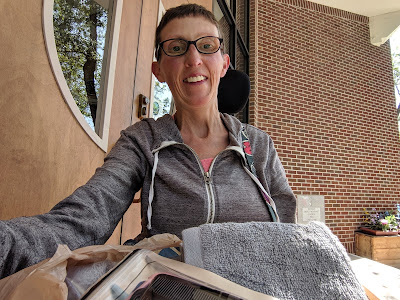 |
| Delivering hygiene kits to my church. |
With each fold and roll, I thought about the person who might receive it. Would it be an uncle who finally would be reunited with his family? Would it be a mother or her child who had desperately fled violence in her home country?
A wave of gratitude washed over me.
I didn't have to worry about these hygiene items. I had a fully stocked bathroom, access to a hot shower whenever I wanted one, and the security of a permanent home without the threat of violence, racism, or deportation.
Purchasing and assembling hygiene kits may not be what we think justice looks like, but in caring for the marginalized, often invisible people - our brothers and sisters in humanity - it's exactly what's called for. Let's do more of it.
Who are "the least of these" in your community, and how can you serve them?
What kinds of justice will you create this week? This month? This year?
----
Some Doorways from this week:
- I donated some more clothes last weekend, this time to a local clothes closet where all items are free to the public. When I dropped off my donation, I saw a young boy with his father carrying a grocery sack of items. It was a true joy to see our community come together to offer help to those in need. Another example of justice in action.
- I'm not typically one to try new foods, but with our meal kit service, I've been stretching my palate. Last week, we ate something called "grilling cheese" seasoned with za'atar (a spice I'd never heard of) along with sumac coated red onions (another unknown spice). I have never like onions, and I was tempted to leave them off my plate, but at Shawn's encouragement, I gave them a try. The whole meal was SO delicious! Now I wonder what I've been missing out on by dismissing certain foods.





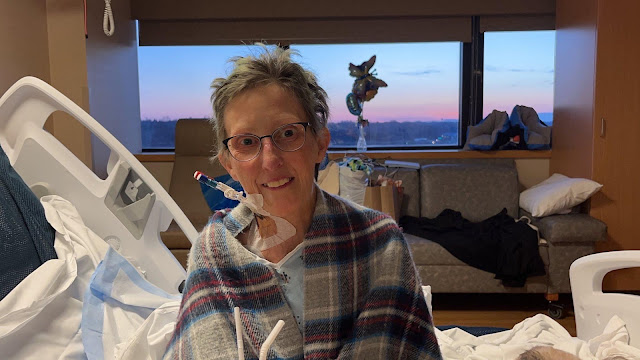
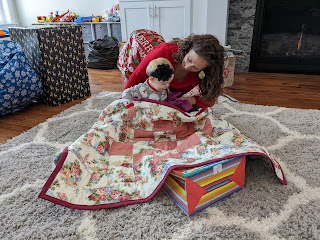
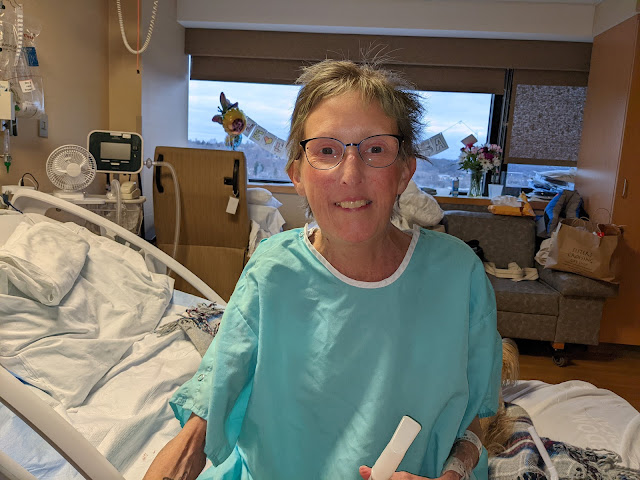

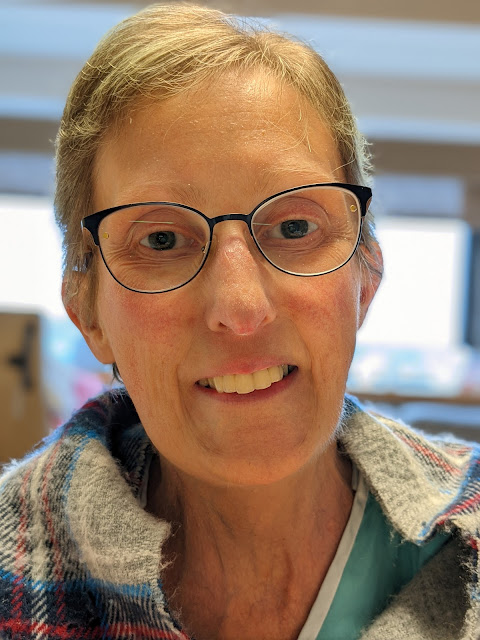
Comments
Post a Comment